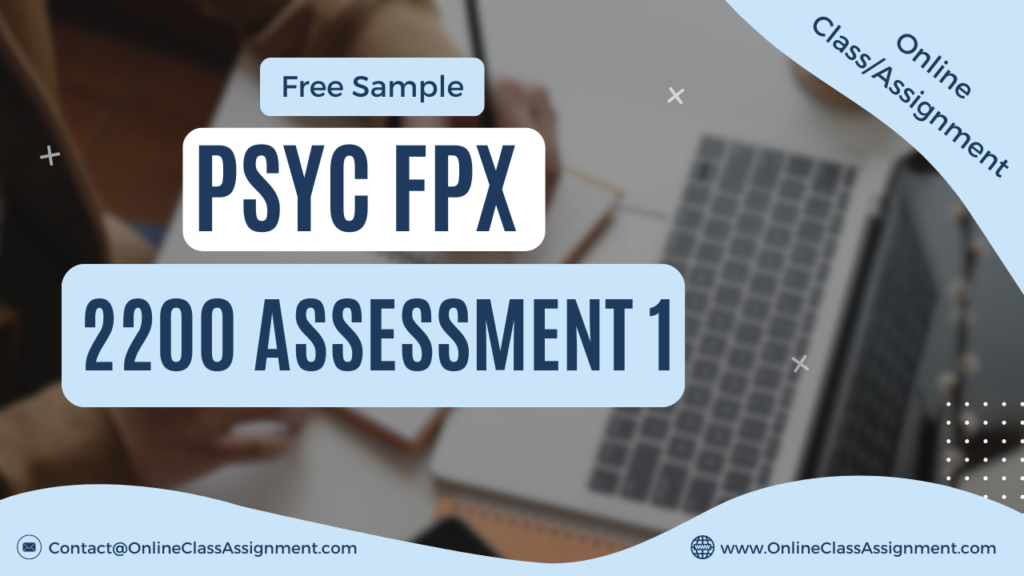
PSYC FPX 2200 Assessment 1 Applying the Behavioral Learning Theory
Student Name
Capella University
PSYC FPX 2200 Educational Psychology
Prof. Name
Date
What is the Behavioral Learning Theory?
According to behaviorists, human learning is predominantly a result of conditioning, irrespective of genetic predispositions or personality traits. Behavior modeling involves a series of reinforcement activities that either facilitate or impede stimuli and responses across various contexts (Sun et al., 2017).
Conditioning
| Details | Explanation |
|---|---|
| Definition | Utilizing reinforcement to impart skills through experiential learning. |
| Key Concepts | – Strengthening and weakening of stimulus-response associations based on incentives and punishments. |
| Examples | – Classical conditioning (e.g., Pavlov’s dogs) – Operant conditioning (e.g., Skinner’s rats) |
| Explanation | Behaviorist learning theory emphasizes stimuli-response dynamics, where reinforcement plays a critical role in shaping behavior (Cherry, 2019). |
Learning Task
| Details | Explanation |
|---|---|
| Description | Learning tasks aligned with behavioral learning theory include utilizing flashcards for studying and review, engaging in drills to enhance memorization, and incorporating repetition. |
| Stimulus and Response | – Stimulus represents the cue – Response corresponds to the desired answer |
| Example | In flashcard usage, the stimulus is the presented word or concept, while the response is the provided answer or example (Clark, 2018). |
PSYC FPX 2200 Assessment 1 Applying the Behavioral Learning Theory
Application
| Details | Explanation |
|---|---|
| Context | The application of behavioral learning theory is evident in self-regulated study practices, such as utilizing flashcards. |
| Stimulus and Response | – Stimulus: Presented word or concept – Response: Provided answer or example |
| Example | In self-regulated study practices, the stimulus constitutes the presented word or concept, while the response denotes the provided answer or example (Sun et al., 2017). |
References
Cherry, K. (2019). History and key concepts of behavioral psychology. Verywell Mind. https://www.verywellmind.com/behavioral-psychology-4157183
Clark, K. R. (2018). Learning theories: Behaviorism. Radiologic Technology, 90(2), 172-175.
Mayer, R. E. (2018). Educational psychology’s past and future contributions to the science of learning, science of instruction, and science of assessment. Journal of Educational Psychology, 110(2), 174-179.
Sun, J. C. Y., Oh, Y. J., Seli, H., & Jung, M. (2017). Learning behavior and motivation of at-risk college students: The case of a self-regulatory learning class. Journal of At-Risk Issues, 20(2), 12-24.
PSYC FPX 2200 Assessment 1 Applying the Behavioral Learning Theory
Get Capella University Free BS Psychology Samples
BIO FPX 1000
COM FPX 1150
HIM FPX 4610
HIS FPX 1150
HUM FPX 1150
PSYC FPX 1000
PSYC FPX 2200
PSYC FPX 2300
